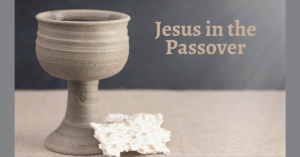As Jesus was hanging on the cross, one of the final statements He made was to his beloved apostle and closest friend, John. John records this in his gospel, John 19:26-27: “When Jesus saw his mother and the disciple whom he loved standing nearby, he said to his mother, ‘Woman, behold, your son!’ Then he said to the disciple, ‘Behold, your mother!’ And from that hour the disciple took her to his own home.”
What a demonstration of the heart of Jesus that is full of compassion and love! As He is dying on the cross, He is concerned for who will care for his mother after He has left this world. As the oldest son to Mary, it was Jesus’ responsibility to care for her as she aged. Knowing that at this time His brothers were not believers, Jesus entrusted the care of his mother to John.
But why would this be a necessary consideration? That very question is what prompts most biblical scholars to conclude that John needed to care for Jesus’ mother because Jesus’ earthly father, Joseph, had passed away.
And then the commentaries stop there.
As if this is some minor footnote to the text.
Jesus is hanging on the cross dying at the age of 33. And throughout the record of his ministry for the three years prior to this moment, there is no mention of Jesus attending his father’s funeral, which tells us Jesus was at most in his twenties when Joseph died.
The noble man who was courageous enough to take Mary as his wife under such a strange and miraculous pregnancy. The one chosen by God to raise the Son of God. The one given dreams to move his family to Egypt for their protection from Herod. The one who uprooted again to raise his family in Nazareth. The one who taught Him the craft of carpentry. His father. His dad. And yet we brush over his death like it’s a neat little fact of history uncovered by a statement at the cross.
While Jesus is 100% God and knows all things, He is still 100% man and experienced life here with all its emotions. We know He felt joy, sorrow, compassion, and even hunger. So we know He also experienced intense grief. We see a glimpse of that in the account of the death and resurrection of Lazarus. The fullness of the emotion is best described in the Amplified version:
John 11:33-38 When Jesus saw her sobbing, and the Jews who had come with her also sobbing, He was deeply moved in spirit [to the point of anger at the sorrow caused by death] and was troubled, and said, “Where have you laid him?” They said, “Lord, come and see.” Jesus wept. So the Jews were saying, “See how He loved him [as a close friend]!” But some of them said, “Could not this Man, who opened the blind man’s eyes, have kept this man from dying?” So Jesus, again deeply moved within [to the point of anger], approached the tomb. It was a cave, and a boulder was lying against it [to cover the entrance].
Jesus stood at the tomb knowing He was going to bring Lazarus back to life. Jesus knew this resurrection would be another demonstration of His deity, another work that affirmed He is God. Yet, He was so deeply moved in spirit that he was angry at the sorrow caused by death. Jesus knew Lazarus was not going to remain dead. Yet, He wept, with a deep heartfelt sorrow.
How much more do you think Jesus wept over the death of His father?
When I think of that fact, it brings into clearer focus the passage in Hebrews 4:14-16. “Since then we have a great high priest who has passed through the heavens, Jesus, the Son of God, let us hold fast our confession. For we do not have a high priest who is unable to sympathize with our weaknesses, but one who in every respect has been tempted as we are, yet without sin. Let us then with confidence draw near to the throne of grace, that we may receive mercy and find grace to help in time of need.”
This is the most amazing thing about the God of the Bible. He didn’t sit upon His throne while we human peons wallowed in the misery of our own making. He set aside the throne room of heaven, which was fully His in all its glory, in order to come down and take on human form. As Paul said in Philippians 2, Jesus, “who, though he was in the form of God, did not count equality with God a thing to be grasped, but emptied himself, by taking the form of a servant, being born in the likeness of men. And being found in human form, he humbled himself by becoming obedient to the point of death, even death on a cross.”
Jesus knows fully our struggle because He has experienced it first-hand. He knows our sorrow, our temptations, our pains. Our Great High Priest can sympathize with us in every way. And His heart is described as compassionate. As God, His very character is loving and compassionate, but He also shares compassion with us because He knows what it is like to suffer – and He knows what it is like to suffer the loss of a parent.
Jesus knew the passing away of His earthly father was probably necessary for Him to begin the work of His heavenly Father. And Jesus also knew He would join Joseph shortly in heaven, much like when He stood before the tomb of Lazarus. But I know His grief and sorrow was much more at his father’s tomb.
July 4 was the anniversary of my mom’s passing. I was only 36 when I held her hand and watched her leave this world for her heavenly home. My mom was a beautiful woman of God. She was my role model and my best friend. It is the kind of loss that you never really get over. You just learn how to walk in grief.
And I was “deeply moved in spirit to the point of anger at the sorrow caused by death,” even knowing that I will one day see her again, perfect and whole. However, I know I can take that grief and pain straight to the compassionate heart of Jesus because Jesus understands it fully.





3 thoughts on “How Can Jesus Relate to This?”
I think it is also interesting that Jesus could have healed Joseph. Or raised him from the dead. We don’t understand God’s timing, but it is obvious that timing is important. Jesus told Mary his time had not yet come when she asked him to help at the wedding. He held back for all those years from doing anything, fixing anything. It wasn’t that he was coming into his power. It wasn’t that all of a sudden when he turned 30 he got his godly power, like Harry Potter turning 11.
I struggle with over-filling my life. I see something good and I add it to my schedule, realizing only later that I am missing out on something better because I say “yes” to everything. I want to be more like Jesus, waiting on God’s timing and looking for his direction in my life. I may miss out on some “good” things, but I would gain so much more.
That is a very insightful point! Yes, God’s timing is always perfect, even when we don’t understand it. I too wish I had that kind of restraint to patiently wait for what God has in store, knowing it will be significantly better than what I could plan for.
I understand
Comments are closed.